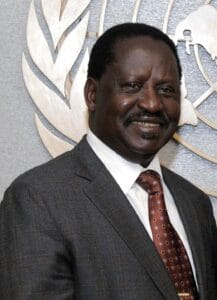Sudan denies UAE allegations of bombing diplomatic residence
The UAE Ministry of Foreign Affairs issued the accusations on Sunday, claiming the Sudanese army employed aircraft to target the ambassador’s residence.

The Sudanese army has categorically denied accusations from the United Arab Emirates (UAE) that its forces bombed the residence of the UAE ambassador in Khartoum. The UAE Ministry of Foreign Affairs issued the accusations on Sunday, claiming the Sudanese army employed aircraft to target the ambassador’s residence. In response, the UAE announced plans to file a protest note with the United Nations and regional organizations.
This incident marks a significant escalation in the already strained relations between Abu Dhabi and Khartoum. Sudanese military leaders have countered by accusing the UAE of exacerbating the ongoing conflict by providing military support to the Rapid Support Forces (RSF). A spokesperson for the Sudanese Armed Forces stated on Monday, “The Sudanese Armed Forces condemn and deny the accusation by the United Arab Emirates of bombing the residence of its ambassador in Khartoum.”
The spokesperson further clarified that the Sudanese military does not target diplomatic missions, U.N. entities, or aid organizations, nor does it utilize these locations for military operations. Instead, they attributed the attack to the “Terrorist militia of the Daglo rebels,” claiming that these militants are supported by nations known to the international community. The army asserted its right to defend the Sudanese state by targeting only locations where the RSF operates.
Since the outbreak of intensified fighting in April 2024, all diplomatic missions have evacuated Khartoum, with most relocating to Port Sudan. Sudanese officials contend that the RSF, which has taken control of Khartoum, has looted and attacked foreign embassies with little in the way of international condemnation.
In solidarity with the UAE, both Kuwait and Jordan condemned the alleged attack on the ambassador’s residence. The Kuwaiti Ministry of Foreign Affairs underscored the “importance of respecting the sanctity of diplomatic missions and providing them with full protection, in accordance with the provisions of the Vienna Convention on Diplomatic Relations of 1961.” Meanwhile, a spokesperson for Jordan’s foreign ministry, Sufian Qudah, expressed the country’s “firm condemnation and absolute rejection” of the alleged attack, describing it as a “serious violation of international law and an infringement on the sanctity of diplomatic premises.”
As tensions rise, the situation in Sudan remains precarious, with the international community closely monitoring developments in this increasingly volatile region.












